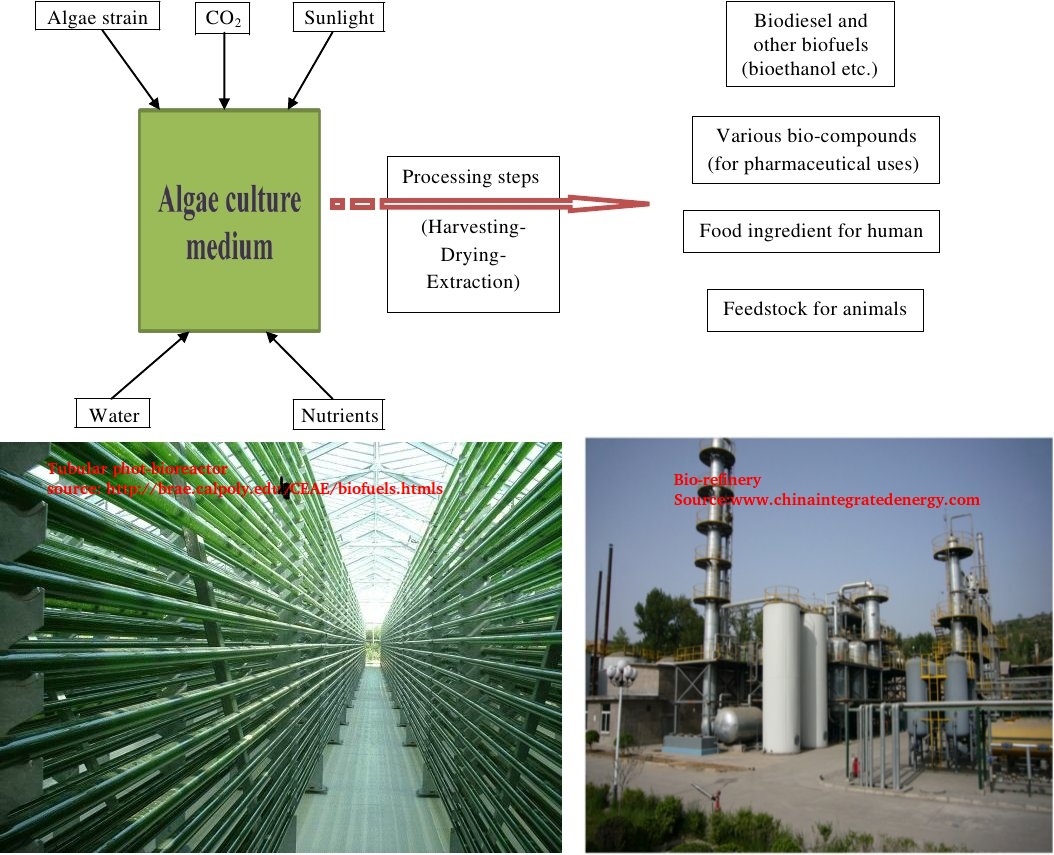Prof. Sharad Bhartiya Research Group IIT Bombay
Automation Lab
Model based optimization of micro algal bio-refinery
- Details
- Published Date
- Written by Super User
- Category: Sample Data-Articles
- Hits: 135
Integrated plant-wide optimization of algal biorefinery using a model based approach (with Prof. Yogendra Shastri, Sponsor: DBT)
 With the reserves of conventional energy sources (coal and crude oil) fast depleting, discovery of the potential of different non-conventional resources as the source of energy is the need of the hour. Energy from biomass is one such promising candidate. But, concerns of food security limit the utilization of food crops such as corn and sugarcane, while the utilization of lignocellulosic plants is typically limited by land availability. In this respect, algae has been regarded as a better alternative due to its high yield per unit area, which makes it very attractive to places like India with limited availability of arable land. Bio-fuel (primarily bio-diesel) can be produced from algal lipid (present in the algal cell), through a series of different processing steps and energy can be generated on burning the fuel. But, though theoretically, a high fuel yield can be achieved from algae, in reality, the process has got many challenges in terms of economic viability that may impede its large scale
With the reserves of conventional energy sources (coal and crude oil) fast depleting, discovery of the potential of different non-conventional resources as the source of energy is the need of the hour. Energy from biomass is one such promising candidate. But, concerns of food security limit the utilization of food crops such as corn and sugarcane, while the utilization of lignocellulosic plants is typically limited by land availability. In this respect, algae has been regarded as a better alternative due to its high yield per unit area, which makes it very attractive to places like India with limited availability of arable land. Bio-fuel (primarily bio-diesel) can be produced from algal lipid (present in the algal cell), through a series of different processing steps and energy can be generated on burning the fuel. But, though theoretically, a high fuel yield can be achieved from algae, in reality, the process has got many challenges in terms of economic viability that may impede its large scale
commercial operation. This current research work aims at optimising different process variables, in order to make the entire process economically viable and environmentally sustainable. Apart from lipid which contributes to generation of biodiesel, algal biomass also contains significant amounts of proteins and carbohydrates. Thus, algae is considered to be a suitable and popular choice as nutraceutical in aquaculture, mariculture and other such cases. Some of the algal species (like Spirulina platensis) have long been regarded as food supplement for human beings. The carbohydrate fraction of algal biomass can be converted to bio-ethanol, a type of bio-fuel, as well. Additionally, it has been found out that a variety of bio-active compounds are produced by different species of algae (eg. β-carotene production by Dunaliella salina etc.). These are of pharmaceutical and various other importance. This research work also takes into account those products along with biofuel and considering different possible end-uses of algae, it targets to find out the optimum operational conditions to attain optimum routing of the algal biomass (from long term sustainability point of view) into different possible end-applications in an integrated algal biorefinery.

